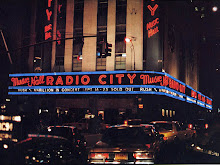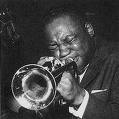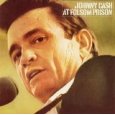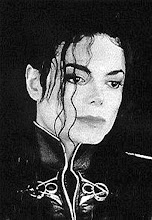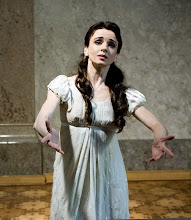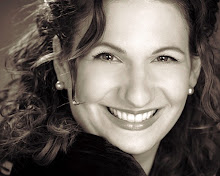 This is one of those boxed sets that's the rarest of finds. It's probably the most coveted collectible out there in the Dead camp.
This is one of those boxed sets that's the rarest of finds. It's probably the most coveted collectible out there in the Dead camp.Since I can't consider myself a big Dead fan (and therefore certainly not a Deadhead, nor even close), the bulk of this review is to be handed over to someone much more qualified than myself to give the review this release deserves.
I can, however, say that I've seen the Dead live. I caught the band in their last year, in 1994, as Jerry Garcia died one year later. I saw the subculture of the Deadheads, and all the shtick that goes along with it, in its total glory. What an experience it was.
I own about a dozen Dead recordings, the majority of them live, however I haven't completely dove into their catalog. I had plenty of exposure to them in college, as lots of guys I know were really into them; but at the time it was more of the hip thing to do, and I wasn't really into "being hip" with my music - let alone with anything - as I've always preferred the more unpredictable route. So recognizing this pseudo-hippie Deadhead trend amongst my peers back in the day, I decided that I would approach the Dead on my own terms at a later time.
As a musical connoisseur, I keep evolving into new and different things all the time. That being said; with time I see myself getting deeper into the Dead, and perhaps they'll end up as one of my favorite bands in the long run as I discover more and more. I'm actually quite surprised I haven't gone through a bona-fide "Dead phase," in true and deep earnest.
I know enough about the Grateful Dead to understand there's a treasure trove of material to be discovered from this iconic band. Some great discoveries lie ahead, including noodling through the recording highlighted in this review; which by all accounts appears to be the Taj Mahal of all Dead recordings.Grateful Dead
The Complete Recordings Fillmore West 1969
Grateful Dead Prod 10-CD
Rhino 3-CD
2005
When the Grateful Dead originally released their live album Europe 72, it was issued in a three-lp set on vinyl for dual reasons. One was to accommodate the breadth of one of their concerts, the other to fulfill their contractual obligations with Warner Bros in one fell swoop and allow the group to go independent of the corporate record biz.
Had the Dead not been in such dire financial straits at the time of the 1969 release of Live /Dead, it too might have been expanded beyond its double LP size for musical reasons alone. Regardless, the title quickly became and remains one of the definitive live releases in rock as well as wearing extremely well in the face of the multitude of Grateful Dead archival concert pieces released in the thirty-year plus interim.
Now, however, two sets of cds from the same Fillmore West 1969 appearances effectively render Live /Dead obsolete. Most of the three-disc compilation (culled from the 10-cd package) appeared on that earlier album, but if you listen to the entire two sets as now constituted, the flow of the show contains nary a wasted note or beat. Reading long-time Dead publicist and historian Dennis McNally's liner notes, it's not surprising to learn how carefully the band was choreographing this string of concerts on their home turf.
Perhaps not quite the laissez faire hippies of the stereotype, the Dead wanted the optimum conditions for these shows, having spent months preparing and rehearsing the material, original (�Cosmic Charlie, "Mountains of the Moon") and traditional ("Morning Dew, We Bid You Goodnight," the two of which bookend this collection). In addition, through its sound man Owsley Stanley, the group had become ultra-conscious of sound quality for their live music and with a sixteen-track recorder (one of the first available) at their disposal, the stars seemed to be aligned in their favor.
Archivist David Lemieux and engineer Jeffrey Norman have the luxury of hindsight plus the resources of the entire run to create. in the Rhino package, what is arguably the definitive Grateful Dead concert recording. As the band, including two drummers plus Tom Constanten on keyboards, moves from the rootsy likes of "Good Morning Little School Girl," sung, of course, by the inimitable Pigpen, and the reworked folk tune "Dupree's Diamond Blues," into the deeper space of "Dark Star,"� "St Stephen"� and "The Eleven” (those three tunes orchestrated as a massive suite), the sequencing appears utterly logical and complete.
What distinguishes Fillmore West, however, and differentiates it profoundly from Live/ Dead, is the performance included on the third cd of the compilation. While such deliberate deconstruction of their music, including "That's it for the Other One"� "�Alligator" and "Caution Do Not Stop on Tracks"� may leave some listeners cold (even Deadheads who prefer the tighter structure of songs the likes of which the band was just beginning to write at this point), it is nevertheless fascinating to follow the probing for new themes: the expeditions most often led by Garcia, bassist Phil Lesh is never far behind and often in the foreground, but drummers Bill Kreutzmann and Mickey Hart, even apart from their own drum interlude, offer ideas all around. The Dead's interaction here is not altogether unlike a ballet.
The experience of hearing this is akin to sitting on the floor of the stage in the middle of the band as they played. The HCDC remastering offers so much clarity and dynamic depth that, for instance, not only are all of Lesh’s bass notes audible, but also contain an almost tactile clarity. The same is true of the drums and percussion of Kreutzmann and Hart, the lightest touch of which come through with proportionate presence.
Grateful Dead aficionados as well as dilettantes have equal odds for epiphany working their way through all the sets from this entire four-night run at the fabled rock venue. The band’s grasp of dynamics isn’t applied just to the jams, as demonstrated by the flow of 2/27’s “Good Morning Little Schoolgirl�: their performance here suggests the band learned much about dynamics playing the blues following Pigpen’s lead, as Jerry Garcia’s howling lead guitar drops out in the blink of any eye to allow the whispering reentry of the vocal and the equally soft sound of the harp.
“Doin’ that Rag� is one of the guitarist’s earliest songwriting collaborations with Robert Hunter, whose philosophy of positivism, as it evolved over the years, is noteworthy even at this stage. The Dead find the tune equally useful as a warm-up exercise on the first night and the precursor of a cool-down toward the end of the first sets on 2/28 and 3/1. In later years, any number of songs served the same purpose, but while the Dead’s repertoire was perhaps never so constricted as these nights at the Fillmore, their improvisational approach expanded in proportion to the shrinking of the number of selections.
The aforementioned suite of songs including “Dark Star,” â€�St. Stephen” and “The Elevenâ€� is a listening experience in itself: the swirl of sound in the former tune is the sonic equivalent of what light shows of the time were attempting to portray visually. and it’s a small but profound pleasure to hear the seamless segue of the middle tune, with its wash of gong, without the abrupt edit as contained on Live/Dead.
But this box set does further justice to the Dead’s eye for detail as it exhibits how their other compositions set up this triad of well-known material. The ominous undertow of “Dupree’s Diamond Blues� is deepened by the eerie organ tones of Constanten, especially as it alternates with the comparatively lighter texture of acoustic guitar on “Mountains of the Moon,� the imagery of which carries its own foreboding rooted in the name of this band:�…hi-ho the carrion crow…�
| “Fillmore West 1969 offers tremendous insight into the evolution of a great band and the art of musical improvisation in general.” |
 While the ten-disc collection is not assembled in book form like the three-disc distillation, its formatting in separate digi-paks for each evening lends itself to inspection of the consecutive night’s set lists. And how differently the Grateful Dead approach each night! The second evening’s first set, in contrast to the previous show, finds the Dead as a dance band pure and simple, with Pigpen upfront throughout, clearly hearkening back to the group’s earliest days in 1965 and 1966. This choice may then, in turn, explain why the band alters its entry into “The Other One,’ and, by extension, into the suite: the Grateful Dead glide as if in free fall as the flavor Garcia’s guitar is nothing but the blues, while its structure is nothing like it whatsoever.
While the ten-disc collection is not assembled in book form like the three-disc distillation, its formatting in separate digi-paks for each evening lends itself to inspection of the consecutive night’s set lists. And how differently the Grateful Dead approach each night! The second evening’s first set, in contrast to the previous show, finds the Dead as a dance band pure and simple, with Pigpen upfront throughout, clearly hearkening back to the group’s earliest days in 1965 and 1966. This choice may then, in turn, explain why the band alters its entry into “The Other One,’ and, by extension, into the suite: the Grateful Dead glide as if in free fall as the flavor Garcia’s guitar is nothing but the blues, while its structure is nothing like it whatsoever. A member of the San Francisco band for a comparatively brief period of time, keyboardist Constanten’s contribution is most notable for the way his organ bubbles under the action of the two guitarists, the fluid played off against the staccato. But his keyboards also bring out the Elizabethan sounds in songs such as the bridge of “St. Stephen� where Kreutzmann and Hart actually have their best moments as a team, navigating the turbulence just before the music morphs in “The Eleven’ on 2/28.
There is definite progression apparent on Fillmore West 1969 The Complete Recordings from one night to the next. The band becomes increasingly comfortable as the run goes on, allowing themselves to stretch out in ways it couldn’t or wouldn’t the first night. It’s worth pondering how much early equipment issues affected the group mindset, but a few bum notes and all, this is generally magnificent stuff, the likes of which shakes the ass and the intellect equally roundly. The Grateful Dead charge to a close on a wave of feedback, “We Bid You Goodnight� marred by a hum that detracts form the quietude of lullaby it’s supposed to present (and does on the final night of March 2nd).
The first of March find the Grateful Dead radiating an authority and confidence that states they know they’re on the right track. Validating Dennis McNally’s perception of this show as the pinnacle of the Fillmore run, the band proceeds with equal amounts purpose and focus, all captured on just two compact discs, suggesting comparative brevity can translate into breadth. After an earthy start that suggests the group is primed for adventure, the Dead display a surety of touch through “Starâ€�/”Stephen”/â€�Eleven,â€� the hours Jerry Garcia spent practicing banjo in the bluegrass mode manifesting themselves in the various progressions and transitions contained here, his eloquence matched phrase for phrase by Phil Lesh.
The plethora of photos contained in the booklet accompanying Fillmore West includes some stage shots from other performances in 1969, but the most notable of all are those that picture Lesh and Garcia juxtaposed on stage, rhythm guitarist Bob Weir not in between them literally (or figuratively as happened later on during the Dead’s career). Especially on the final night, the interplay between the two musicians’ takes on a heightened intensity the likes of which is rare in the Dead history, if only because the bassist is as prominent a figure in the sound as the lead guitarist. In hindsight, this dynamic presages Lesh’s modern day preeminence as the standard-bearer of the kind of exploratory musicianship epitomized by the Dead at their best throughout their career and captured on this set.
The California rock-icons-to-be are absolutely ebullient on the final night, which no doubt accounts for an even more fearless approach that generates generous stretching out at the beginning and the end of the set. With no worries about equipment and by this time bearing an instinctive familiarity with the material, the group radiates a ‘mission accomplished’ air that in and of itself retools their accomplishments as they envisioned them when this all started thee nights before. With due affection, the group sucker punches the audience with “Doin’ That Rag,� before embarking on an expedition into space via “The Other One,� that leads all in attendance even further afield via a drum interlude and a free-form improvisation the likes of which appeared only once before (and oddly enough, very rarely throughout the Grateful Dead’s history).
As much as the group was in the moment as they played during their stay at the Fillmore, they were also anticipating the future. Garcia’s sweet upper-register runs foreshadow his short-lived love affair with the pedal steel that began later in 1969. The guitarist repeatedly quotes the main melodic motif of “Goin’ Down the Road Feelin’ Bad� in the latter stages of the set on disc three, a precursor of what came to be one of Grateful Dead’s greatest show-closers and crowd-pleasers as their career evolved.
McNally alludes to Miles Davis’ Plugged Nickel and John Coltrane’s Vanguard sets in discussing Fillmore West The Complete Recordings and it’s not an inaccurate comparison.The good ol’ Grateful Dead may not hold much attraction for jazz purists, and it’s evenarguable if this grand release will tempt anyone other than completists (though its limited 10,000 piece run sold out months before it was shipped).
But as with Phish’s Island Tour and various Allman Brothers’ concert recordings (archive and recent vintage), to delve into these recordings is to avail yourself ofsome potentially great insight into the art of musical improvisation. Generally speaking, and specifically in reference to the Dead @ Fillmore West 1969 , casting aside the red herrings of preconception may be the biggest favor truly open- minded listeners can offer themselves.
Visit Grateful Dead on the web
Tracks:10 Disc set
Disc One 2/27/69 1 Good Morning Little Schoolgirl 2 Doin' That Rag 3 That’s It for The Other One - Cryptical Envelopment -The Other One -Cryptical Envelopment Disc Two 1 Dupree's Diamond Blues 2 Mountains Of The Moon 3 Dark Star > 4 St. Stephen > 5 The Eleven > 6 Turn On Your Lovelight 7 Cosmic Charlie
Disc Three 2/28/69 1 Morning Dew 2 Good Morning Little Schoolgirl 3 Don’ That rag 4 I’m A King Bee 5 Turn on Your Lovelight
Disc Four 1 That’s It for The Other One - Cryptical Envelopment -The Other One -Cryptical Envelopment 2 Dark Star > 3 St. Stephen > 4 The Eleven > 5 Death Don’t Have No Mercy
Disc Five 1 Alligator> 2 Drums> 3 Jam > 4 Caution (Do Not Stop On Tracks) > 5 Feedback > 6 We Bid You Goodnight
Disc Six 3/1/69 1 That's It For The Other One -Cryptical Envelopment -The Other One -Cryptical Envelopment 2 New Potato Caboose > 3 Doin’ That Rag > 4 Cosmic Charlie >
Disc Seven 1 Dupree’s Diamond Blues 2 Mountains of the Moon 3 Dark Star > 4 St. Stephen > 5 The Eleven > 6 Turn On Your Lovelight 7 Hey Jude
Disc Eight 3/2/69 1 Dark Star > 2 St. Stephen > 3 The Eleven > 4 Turn On Your Lovelight
Disc Nine 1 Doin’ that Rag 2 That's It For The Other One> - Cryptical Envelopment > -The Other One> - Cryptical Envelopment 3 Death Don’t Have No Mercy 4 Morning Dew
Disc Ten 1 Alligator> 2 Drums> 3 Jam > 4 Caution (Do Not Stop On Tracks) > 5 Feedback > 6 We Bid You Goodnight
Tracks:3 Disc set
Track listing
Disc One 1 Morning Dew 2 Good Morning Little Schoolgirl 3 Doin' That Rag 4 I'm A King Bee 5 Cosmic Charlie 6 Turn On Your Lovelight
Disc Two 1 Dupree's Diamond Blues 2 Mountains Of The Moon ) 3 Dark Star > 4 St. Stephen > 5 The Eleven > 6 Death Don't Have No Mercy
Disc Three 1 That's It For The Other One Cryptical Envelopment The Other One Cryptical Envelopment 2 Alligator > 3 Drums > 4 Jam > 5 Caution (Do Not Stop On Tracks) > 6 Feedback > 7 We Bid You Goodnight
Personnel:[ Tom Constanten: Organ; Jerry Garcia: Lead Guitar, Vocals; Mickey Hart: Drums; Bill Kreutzmann: Drums; Phil Lesh: Electric Bass, Vocals Ron “Pigpen” McKernan: Vocals, Harmonica, Percussion, Organ; Bob Weir: Rhythm Guitar, Vocals
by Doug Collette, from allaboutjazz.com

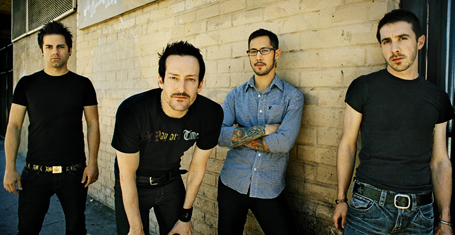
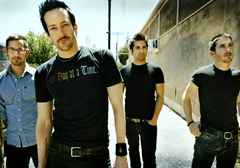 RP: Yeah. After Short Bus went platinum, I decided it was now time to sing. It was time to unleash what I was capable of. I was really intimidated by having to sing originally, and it is something I still grapple with. These kids on "American Idol," by having to get up there and sing and literally be weeded out in front of a live audience, I have a lot of respect for that. I have a buddy, Ryan Star, who was put through the same kind of thing, and I'm just like, My Lord. I have had all sorts of things to help me; you're platinum, relax. So I did, I took that as kind of an encouraging thing to like finally chill out on myself, because I am my own worst critic. The other thing that really fucked with me is drug addiction and alcohol. That fucked me up on The Amalgamut. I was not able to sing "Where Do We Go from Here" live. It is incredibly high, and I couldn't sing it. In the last five years in being sober and quitting smoking and going to vocal coaches, that really put it into overdrive. But it is something I have always grappled with. I consider myself a guitar player. I do work hard at it, and there is something incredible about singing. I did it out of necessity. On Short Bus, I was like, "I don't know anybody else, so I'll do it." It was definitely done with that kind of attitude.
RP: Yeah. After Short Bus went platinum, I decided it was now time to sing. It was time to unleash what I was capable of. I was really intimidated by having to sing originally, and it is something I still grapple with. These kids on "American Idol," by having to get up there and sing and literally be weeded out in front of a live audience, I have a lot of respect for that. I have a buddy, Ryan Star, who was put through the same kind of thing, and I'm just like, My Lord. I have had all sorts of things to help me; you're platinum, relax. So I did, I took that as kind of an encouraging thing to like finally chill out on myself, because I am my own worst critic. The other thing that really fucked with me is drug addiction and alcohol. That fucked me up on The Amalgamut. I was not able to sing "Where Do We Go from Here" live. It is incredibly high, and I couldn't sing it. In the last five years in being sober and quitting smoking and going to vocal coaches, that really put it into overdrive. But it is something I have always grappled with. I consider myself a guitar player. I do work hard at it, and there is something incredible about singing. I did it out of necessity. On Short Bus, I was like, "I don't know anybody else, so I'll do it." It was definitely done with that kind of attitude.









